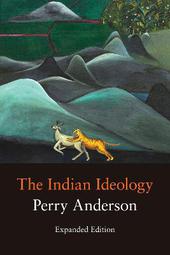
|
The Indian Ideology
Paperback / softback
Main Details
Description
An iconoclastic reappraisal of the history and political culture of modern India in a new, expanded edition featuring the author's reply to his critics, an interview by writer and activist Praful Bidwai and a postscript on India under the rule of Narendra Modi. Since 1947 the Indian state has claimed to possess a harmonious territorial unity, to embody the values of a stable political democracy, and to adhere to a steadfast religious impartiality. Even many of those critical of disparities in Indian society still underwrite such claims. But has the "idea of India" corresponded to the realities of the Union? In The Indian Ideology, historian Perry Anderson provides an unforgettable reading of the Subcontinent's passage through Independence and Partition, the vexed legacies of Gandhi and Nehru, and the strikingly close relationship between Indian democracy and caste inequality.
Author Biography
Perry Anderson is on the editorial board of New Left Review, and the author of many books including Brazil Apart, The Antinomies of Antonio Gramsci and The Origins of Postmodernity.
ReviewsA magnificent achievement. It is a product of his ability, near-unique in today's world of ideas, to distill a country's history and politics into a few thousand words that are at once combative and informative * Business Standard, New Delhi * Anderson's scepticism towards India's claim to be a postcolonial democracy uniquely untainted by repression, emergency powers and other dark arts of territorial "unity" is timely -- Maria Misra * Prospect * Perry Anderson brings together a set of arguments that will be received with disquiet by the scholars and ideologues who have constructed a celebratory, self-righteous consensus about the Indian Republic. Instead of writing off the unspeakable violence and egregious injustice in our society as aberrations in an otherwise successful model, Anderson points to serious structural flaws and the deep seated social prejudices of those who have administered the Indian State in the decades since Independence. It is important to read this book seriously, with equanimity and an open mind, instead of flinching and turning away from it -- Arundhati Roy Well sourced and artfully crafted, offering a comprehensive history of India's ideology -- Yahya Chaudhry * Jacobin * Anderson is unanswerable when he points to a consistent Indian pattern of silence, evasion, and distortion about India's military occupation of Kashmir and its attendant regime of extrajudicial execution, torture, and detention. Many readers will be struck by the evidence Anderson adduces of the insidious dominance of upper-caste Hindus in every realm of social and political life and by his portrait of the primordial politics of caste and religion, which have enshrined a patrimonial state built on nepotism and dynasty worship. Admirers of Gandhi and Nehru will encounter many awkward facts, especially regarding their roles in the partition of India, a calamity usually blamed on British colonial administrators and Indian Muslim leaders -- Pankaj Mishra * Foreign Affairs * Exposes some substantial faultlines in recent Indian writing about India and with some justice questions the emerging consensus around India's democratic successes -- David Arnold * Times Literary Supplement * With his sharp and lucid prose, Anderson strips away many of the liberal myths surrounding Mohandas Gandhi, Jawaharlal Nehru, and Indian democracy itself. His incisive insights, his sweeping vision, his invocation of telling detail are all here in full measure -- Ravi Palat * Critical Asian Studies *
|